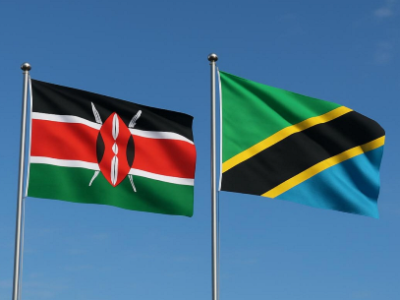By Sonny Aragba-Akpore
The International Telecommunications Union (ITU)turned 160 years on May 17,2025. While it rolled out drums in Geneva, Switzerland headquarters and Paris, France where it began, the multilateral agency for telecommunications development is worried.
2.6 billion people are unconnected to the internet
Of the 2.6 billion people around the world that are still unconnected, the majority are women and girls. It is estimated that 189 million less women were using the Internet than men in 2024, with gaps in access, affordability and digital skills hindering participation.
RELATED: Fate of Critical National Infrastructure protection
And as part of World Telecommunication and Information Society Day, ITU highlighted the need to ensure that women and girls worldwide can benefit from and contribute to the globe’s digital transformation.
Since 1963, the ITU has ensured fair and reliable access to satellite orbits for ITU Member States. Space is now home to satellites from 91 countries that provide services to billions of people.
In 1976, ITU published a technical standard allowing computer networks to work together, laying the foundation for the modern Internet. ITU publishes over 300 open standards every year, making emerging technologies safer, more reliable, and more impactful.
Global connectivity has doubled
In the decade since ITU’s 150th anniversary, global connectivity has doubled. Today, two-thirds of the world’s population is online, benefiting from the opportunities connectivity brings.
Since 1906 – and now with 80 per cent of global goods currently transported by sea – ITU has provided rules and frequency resources that help ships communicate and navigate reliably and securely.
With 99 per cent of all Internet traffic travelling through undersea cables, ITU promotes and facilitates efforts to enhance the resilience of this critical infrastructure.
The ITU commemorated 160 years with dedication to connect
The world on Saturday, May 17,2025 during the yearly World Telecommunication and Information Society Day thought only about the uncertainty in connectivity for 2.6billion population.
“For 160 years, ITU has brought the world together to ensure technology benefits all of humanity,” said ITU Secretary-General Doreen Bogdan-Martin.
“In this milestone year, let’s reaffirm our commitment to building a shared digital future where no one is left behind, and where everyone can thrive.”
Since its founding on May 17,1865, ITU has been at the forefront of technology innovation, fostering multilateralism, social and economic growth, security and safety.
From telegraphy and the first radio signals, to satellites, mobile phones and the latest developments in AI and quantum computing, ITU inspires innovation through cooperation as it works for a world where everyone, everywhere is connected.
This year’s World Telecommunication and Information Society Day holds special significance with the 160th anniversary of the International Telecommunication Union.
Since 1865, ITU has helped shape every major advance in communication: from the telegraph to the telephone, from satellites to the mobile phone, and from the Internet to artificial intelligence and more.
We have seen a great deal of progress in sixteen decades with more people connected than ever before, yet one-third of humanity remains offline.
World Telecommunication and Information Society Day
World Telecommunication and Information Society Day is a moment to reflect on the work still ahead. This year – and every year – we need to ensure that everyone, especially women and girls, benefits fully from the opportunities brought by technology.
ITU Secretary General said “I thank ITU’s 194 Member States and over 1,000 organizations from the private sector, academia, the technical community that work every day to ensure that the technologies shaping our shared digital future serve everyone, everywhere.”
Digital technologies have the power to accelerate progress across every sector of society, yet that potential remains out of reach for many. Of the 2.6 billion people still unconnected, the majority are women and girls. Gaps in access and affordability of the internet and digital devices, as well as limited digital skills, continue to hinder the participation of women and girls in today’s economy and in shaping tomorrow’s digital solutions. Bridging this divide is essential to unlocking new pathways for economic growth, innovation, and sustainable development.
World Telecommunication and Information Society Day (WTISD) 2025 highlights the pressing need to advance digital gender equality, so that women and girls everywhere can also benefit from and contribute to digital transformation.
Accelerating collective action to ensure digital transformation
As the world marks 30 years since the Beijing Platform for Action, WTISD-25 is a critical moment to accelerate collective action that ensures digital transformation delivers opportunity for everyone, everywhere.
WTISD marks the founding of the International Telecommunication Union (ITU) – the United Nations agency for digital technologies. In 2025, ITU commemorates its 160th anniversary, highlighting its long-standing role in advancing global connectivity and fostering international cooperation.
The ITU is governed by the Plenipotentiary Conference and the Administrative Council. The Plenipotentiary Conference is the supreme organ of the Union and the decision-making body, which determines the direction of the Union and its activities. At the Plenipotentiary conference 2018 in the United Arab Emirates (29 October to 16 November 2018) ITU members approved the Strategic plan (SP) for the Union for 2020-2023 (Resolution 71, Revised Dubai 2018), updating the Strategic Plan. This Strategic Plan, covering the timeframe 2020-2023, is the first Strategic Plan fully within the timeframe of the 2030 Agenda for Sustainable Development.
The ITU Secretariat, the Council and members at the Plenipotentiary Conference worked on drafting this new Strategic Plan with both clear links to the Sustainable Development Goals (SDGs) and a vision to have an impact in achieving the SDGs.
It includes a whole section entitled “Linkages with the Sustainable Development Goals” where the most relevant SDG Goals for ITU are clearly highlighted: SDG 9 (Industry, Innovation and Infrastructure) and Target 9.c, SDG17 (Partnership for the Goals) as a means of implementation, SDG 4 (Quality Education including Target 4.b) and SDG 5 (Gender Equality including Target 5.b) as well as others where Information Communication Technologies (ICTs), enabled by ITU activities, will have the biggest impacts, such as SDG 11 (Sustainable Cities and Communities), SDG 10 (Reduced Inequalities), SDG 8 (Decent Work and Economic Growth), SDG 1 (No Poverty), SDG 3 (Good-Health and Well-Being).
Connect 2030 Agenda
In addition the revised Resolution 200 entitled “Connect 2030 Agenda for global telecommunication/information and communication technology, including broadband, for sustainable development” shows strong commitment by membership to the Goals in the new SP and closely aligns the strategic framework with the SDGs and their timeframe.
This is further re-enforced through the linkages to the World Summit on Information Society (WSIS) Action Lines, most notably those where ITU is the sole Action Line facilitator; C2 (Information and communication infrastructure), C5 (Building confidence and security in the use of ICTs) and C6 (Enabling environment).
ITU WSIS Action Line Roadmaps for C2, C5 and C6 are detailed plans to guide progress towards achieving the WSIS Implementation goals. The Roadmaps serve as a reference and guiding tool on ITU’s efforts on WSIS Action Lines as facilitator and implementor, and they provide a broad vision and detailed overview of the activities planned within the mandate of the Union.
ITU: Shaping major advance in communication since 1865
Since 1865, ITU has helped shape every major advance in communication: from the telegraph to the telephone, from satellites to the mobile phone, and from the Internet to artificial intelligence and more.
The ITU said we have seen a great deal of progress in sixteen decades with more people connected than ever before, yet one-third of humanity remains offline.
World Telecommunication and Information Society Day is a moment to reflect on the work still ahead.
“This year – and every year – we need to ensure that everyone, especially women and girls, benefits fully from the opportunities brought by technology.“
World Telecommunication Day 2025, officially known as World Telecommunication and Information Society Day (WTISD), is observed yearly on May 17. This global event aims to raise awareness about the potential of the Internet and other information and communication technologies (ICTs) in transforming societies and economies.
The day also underscores the critical need to bridge the global digital divide, making digital innovation inclusive and accessible for all.
In 2025, the importance of World Telecommunication Day is more pronounced than ever, as the world marks both 160 years of the International Telecommunication Union (ITU) and 30 years since the Beijing Platform for Action, a milestone for gender equality.
World Telecommunication Day 2025
World Telecommunication Day 2025 was observed on 17 May 2025 marking the 160th anniversary of the International Telecommunication Union (ITU). This global observance highlights the transformative power of digital technologies and raises awareness about the importance of bridging the digital divide, especially for women and girls.
With the theme focused on “Why gender equality in digital transformation matters”, this year’s celebration aims to accelerate progress toward inclusive and equitable access to Information and Communication Technologies (ICTs).






























